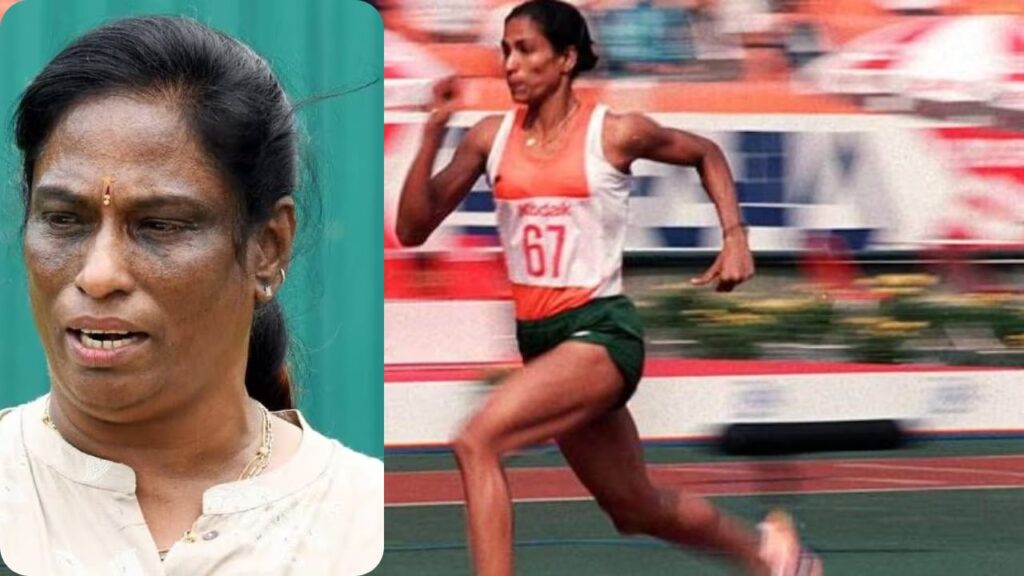
PT Usha was one of my heroes growing up. I still remember listening to the All India Radio news bulletins to know if Usha, against all odds, had yet again beaten the best and won India an international medal. Her duels with Lydia De Vega of Philippines were the stuff of legend.
We will always debate what would have happened had Usha thrust herself forward a millimetre, enough to nudge ahead of the Romanian Cristina Cojocaru, who caused national heartbreak after the results of the 400 metres hurdles were announced at Los Angeles in 1984. When news trickled in that Usha had missed the bronze medal at Los Angeles, India was thrust into a state of national mourning. I, a kid of 8, cried for an hour and more. In a nation where sporting legends are rare, news of such heartbreak often leaves a lasting impact. To put it bluntly, when such things happen, a billion strong nationalist minds appear to crumble.
To her credit, she was back at her absolute best in a year’s time at the Asian Track and Field Championships at Jakarta, Indonesia. She won five gold medals and was going for a record 6th in the 4X100 relay. She eventually had to settle for 5 golds and a bronze.
And then Usha was truly at the centre of our nationalist imagination in 1986. With the image of the girl next door, everyone, including our mothers and grandmothers, could identify with the girl who was believed to have been the best of her generation. Despite having missed out on an Olympic medal, she surpassed herself at the 1986 Seoul Asian Games. In a country where sporting achievements are few and far between, Usha struck a chord, and her multiple-medal-winning exploits at the international level soon turned her into a legend. Her four gold medals at Seoul made Usha a national icon and a symbol of women’s empowerment at the same time.
Mary Kom avoids answering question on wrestler controversy at an event in Kolkata
This is the image of Usha I have grown up with. A super achiever capable of doing special things. And that’s the Usha I had imagined to be the President of the Indian Olympic Association (IOA). In fact, when news came out that she was unanimously elected IOA boss, I had tweeted in delight. Finally, we had an athlete atop the IOA, and one who would deal with things with empathy and sensitivity. She had been there and done that and knew what the athletes needed. No one better, I had argued.
And that’s where it pains me. To know that I was wrong. To know that not all champion athletes make good administrators. To know that your heroes too fail you on occasion. And when that happens, it hurts and hurts bad.
Usha, in her role as IOA President, should have dealt with the wrestlers’ protest with far greater empathy. She should have gone to Jantar Mantar and met the protesters on day one, rather than appearing standoffish and asking them to come meet the IOA top brass. Ego came in between, and the matter went out of control. Whether she was under some sort of pressure, we will not know but her public statements showed her to be insensitive and inconsiderate.
As a woman who has struggled her way to the top, much was expected of Usha. One would have imagined that she would take Sakshi Malik and Vinesh Phogat into confidence and solve the issue at the earliest. Act like a leader in the true sense. To label the protest an act of indiscipline was a kind of fall from grace. Certainly not the Usha I had grown up with.
When your icons fail you, it hurts. You are accustomed to a certain image of these men and women and when it breaks, it takes time to digest. After all, they are human and they will also have flaws. Being in power means you have to make a few compromises, and may be Usha has had to do so as well. But in doing so, she has lost a few of her fans. Lost the opportunity to make a difference to Indian sport as the President of the IOA. Stand up to the challenge as President. Now, the protest has turned political. Every single day, some politician or the other is at the site giving a political speech. The wrestlers are fast turning into pawns in a power game, something they themselves feared could happen.
And in all this, Usha is no longer relevant. She can no longer make a difference. She has lost control, and in the process, lost out as a hero as well. I know it doesn’t matter to her. It should not. But for me, it is a part of my childhood that has all of a sudden been shaken up. As I said, when your icons fail you, it pains. It is the kind of disappointment I could have done without.
And that tells me one very fundamental thing – I was wrong to judge Usha the administrator in the same vein as Usha the athlete. Not all champion athletes make good administrators, and it is important we understand that with immediate effect. The earlier we do so, the better it is for all of us who want Indian sport to succeed going forward.



